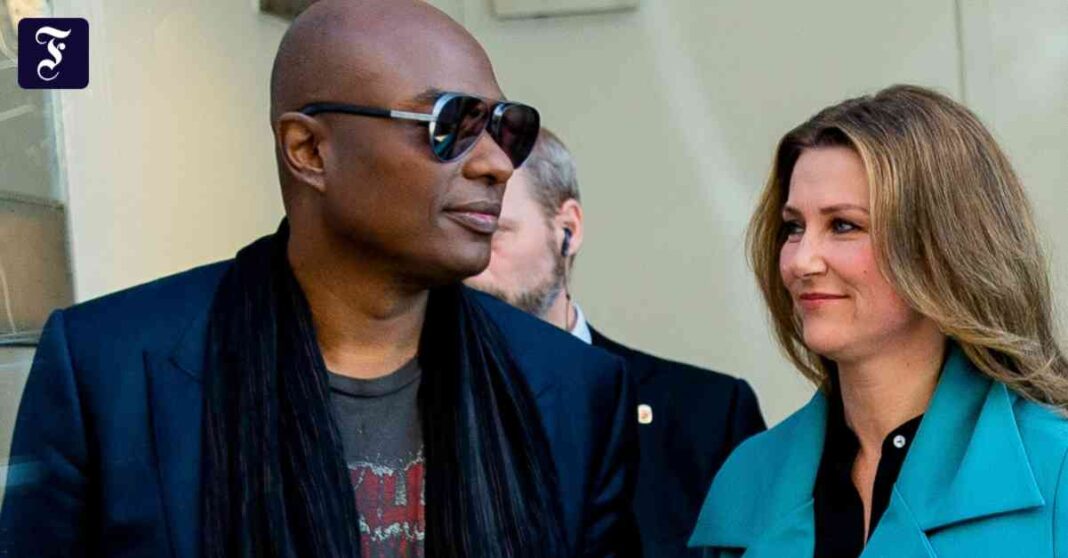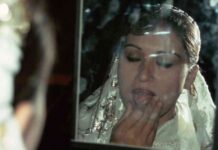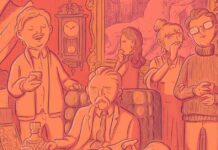Norwegian Princess Märtha Louise Marries a Shaman: A Controversial Royal Wedding
Norway’s royal family has been facing challenging times, but the people of Norway continue to stand firmly behind King Harald V. In a recent survey conducted on behalf of the newspaper „Dagbladet,“ nearly three out of four Norwegians expressed their desire for the king not to abdicate. Only 12.6 percent of respondents were in favor of a change in succession, marking the lowest level of support for a throne change since the survey began. Despite the health challenges facing the 87-year-old King Harald, he has made it clear that abdication is not an option for him, citing the lifelong commitment he made when taking the throne.
Princess Märtha Louise, the king’s daughter, has once again found herself at the center of controversy as she prepares to marry her fiancé, American shaman Durek Verrett, in the tourist town of Geiranger. The wedding is set to take place at a hotel and on the grounds of a nearby farm, with the royal family and hundreds of guests from both domestic and international backgrounds in attendance. The couple will have a church wedding, and the priestess overseeing the ceremony recently stated that she does not see any issue with marrying a „shaman,“ as the church unites people of various beliefs, and Märtha Louise is a member of the church.
Durek Verrett, the princess’s fiancé, has sparked controversy in Norway due to his unconventional beliefs and practices. He has made public statements suggesting that behavioral issues in children may be caused by spirits inhabiting them and has offered advice on how to remove these spirits, which some Norwegian media outlets have described as „medieval“ and „exorcistic.“ Verrett has also claimed to have the ability to help with cancer, referring to leukemia as an „imbalance in the skeleton.“ He identifies himself as a hybrid of reptilian and Andromedan origins with access to ancient spirit energies. Together with the princess, the 49-year-old conducts business ventures that have drawn criticism in Norway for leveraging Märtha Louise’s royal status, tarnishing the reputation of the royal family in the eyes of many.
One of the couple’s ventures that caused a stir was the release of their own wedding-themed gin, branded as „Pink Gin,“ featuring a monogram designed specifically for their wedding day. Märtha Louise has been prohibited from using her princess title in commercial contexts since 2019, and Norway has strict regulations on alcohol advertising. The gin was eventually pulled from the market, reigniting discussions in Norway about stripping Märtha Louise of her princess title. Despite no longer using the title „Royal Highness“ and being barred from officially representing the royal family, she remains a prominent figure in Norway as the king’s daughter.
Meanwhile, the king’s granddaughter, Mette-Marit’s son Marius Borg Høiby, has also been embroiled in controversy. Police are investigating him for allegedly causing harm to his girlfriend under the influence of alcohol and cocaine, leading to damage in her apartment. Mette-Marit, who has two children with Crown Prince Haakon, had Marius Borg by her side when she married Haakon, having given birth to him during her time as a student in Oslo. Marius Borg’s father, Morten Borg, was involved in criminal activities, including violence and drug offenses, in the past. Despite these challenges, Marius Borg maintains a close relationship with his father, who recently separated from his wife, an heiress.
Marius Borg has publicly acknowledged the allegations against him and expressed remorse for his actions. However, two of his former girlfriends have come forward with similar accounts of being assaulted by him. The police have taken their statements into consideration as part of their investigation.
### Royal Family Dynamics
The royal family dynamics in Norway have been scrutinized in recent years, with various members facing personal challenges and controversies. Princess Märtha Louise’s decision to marry a shaman like Durek Verrett has raised eyebrows not only within the royal family but also among the Norwegian public. The unconventional beliefs and practices of Verrett have led to widespread criticism and concern, especially given his claims of curing diseases and communicating with ancient spirits.
The marriage between Princess Märtha Louise and Durek Verrett is seen as a departure from traditional royal norms, sparking debates about the role of the royal family in modern society. While some view their union as a symbol of acceptance and openness, others question the implications of aligning the royal family with individuals espousing controversial beliefs. The ongoing controversies surrounding Märtha Louise and her fiancé have put the royal family in a challenging position, as they navigate public scrutiny and maintain their standing in Norwegian society.
### Public Perception and Criticism
The public perception of Princess Märtha Louise and her relationship with Durek Verrett has been mixed, with many expressing concerns about the implications of their partnership. Verrett’s unconventional practices and statements have drawn sharp criticism from various sectors of Norwegian society, with skeptics questioning the legitimacy of his claims and the impact of his teachings on vulnerable individuals. The commercial ventures undertaken by Märtha Louise and Verrett have also faced backlash, with accusations of exploiting her royal status for personal gain.
Critics argue that Märtha Louise’s association with Verrett undermines the integrity of the royal family and raises questions about the boundaries between personal beliefs and public responsibilities. The decision to market a wedding-themed gin and engage in public speaking engagements as a couple has further fueled controversy, highlighting the ethical considerations surrounding the intersection of royalty, spirituality, and commercial interests. As the wedding date approaches, the scrutiny on Märtha Louise and Verrett intensifies, prompting discussions about the future of the royal family and the values they represent.
### Legal and Ethical Implications
The legal and ethical implications of Princess Märtha Louise’s marriage to Durek Verrett have sparked debates about the boundaries of royal conduct and the responsibilities of public figures. The restrictions placed on Märtha Louise regarding her use of titles and involvement in commercial activities reflect the need to uphold the dignity and reputation of the royal family. However, the challenges posed by her relationship with Verrett raise questions about the extent to which personal choices can influence public perceptions and expectations.
The controversy surrounding Märtha Louise and Verrett’s wedding has also prompted discussions about the role of spirituality and alternative beliefs in contemporary society. While diversity and tolerance are valued principles, the promotion of unverified claims and practices raises concerns about the potential harm they may cause. As the royal family grapples with these complex issues, the public looks to King Harald V for guidance and leadership in navigating the evolving landscape of royal responsibilities and public accountability.
In conclusion, the marriage between Norwegian Princess Märtha Louise and shaman Durek Verrett has sparked controversy and divided public opinion in Norway. The unconventional beliefs and practices of Verrett, coupled with the commercial ventures undertaken by the couple, have raised ethical and legal concerns about the boundaries of royal conduct and the responsibilities of public figures. As the royal family faces ongoing challenges and scrutiny, the unity of the Norwegian people behind King Harald V underscores the importance of upholding the dignity and integrity of the monarchy in the face of changing social norms and values.















